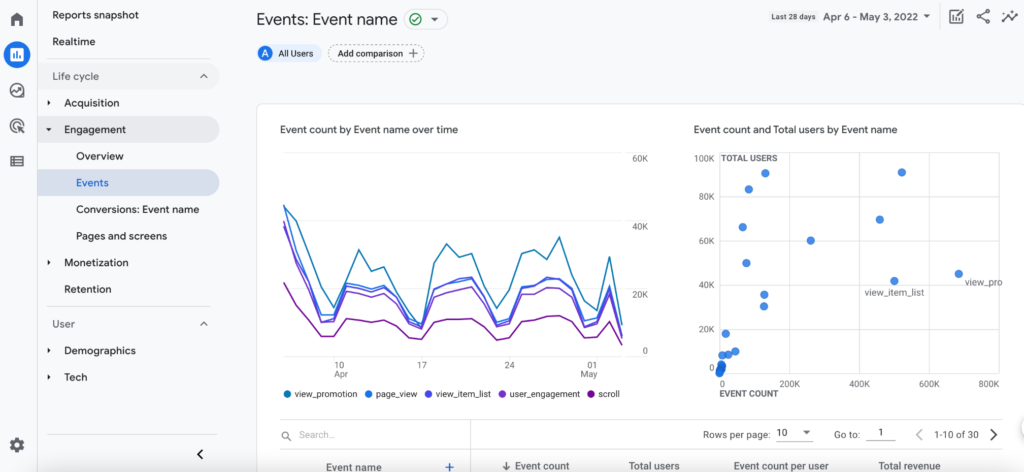The Comprehensive Guide to Utilizing Google Analytics for Internet Site Performance Analysis
In the intricate landscape of digital advertising and marketing, understanding the nuances of web site efficiency evaluation is critical for any type of service making every effort to be successful online. Leveraging tools like Google Analytics can supply invaluable insights into individual habits, web content performance, and total site performance.
Setting Up Google Analytics Account
Setting up a Google Analytics account is the preliminary action towards acquiring useful understandings into your site's efficiency and customer behavior. To embark on this procedure, browse to the Google Analytics internet site and sign in with your Google account credentials.
Furthermore, it is suggested to establish goals within Google Analytics that align with your site's goals. These objectives can consist of tracking the number of newsletter sign-ups, product purchases, or contact type submissions. By developing objectives, you can keep an eye on and review the performance of your site in accomplishing its designated function. Eventually, establishing up a Google Analytics account lays the structure for informed decision-making and constant enhancement of your on the internet existence.
Understanding Key Metrics
Recognizing crucial metrics plays an essential function in assessing the performance and performance of a web site. These metrics offer important insights right into exactly how users interact with the website, assisting businesses make educated choices to enhance customer experience and accomplish their goals. Some vital metrics to concentrate on include internet site traffic, bounce price, conversion price, average session period, and pageviews per session.
Studying Individual Habits
Analyzing user behavior on a website gives beneficial understandings into how site visitors involve with the material and navigate through the website. Google Analytics uses a series of tools to help assess individual habits, such as tracking web page views, session period, bounce rates, and more. By understanding exactly how individuals communicate with your website, you can make data-driven choices to optimize the customer experience and enhance overall efficiency.
One secret metric to take into consideration is the bounce price, which suggests the percentage of site visitors who browse away from the website after checking out try here just one web page. A high bounce rate might suggest that the touchdown page is more tips here relevant or not interesting to visitors' demands. By determining web pages with high bounce rates, you can concentrate on enhancing their web content or call-to-action to motivate more exploration.
In addition, evaluating customer flow can give insights right into the most typical courses visitors take through your website. By visualizing the individual trip, you can identify possible bottlenecks or areas for renovation in navigation and material positioning. This information can assist you maximize the site framework to boost user interaction and urge wanted activities.
Optimizing Web Site Efficiency
To enhance web site efficiency, strategic application of data-driven understandings is essential for accomplishing optimum customer engagement and site performance. Google Analytics supplies valuable tools to help in enhancing internet site efficiency (When Does The Tracking Code Send An Event Hit To Google Analytics). One key element is examining website rate metrics to make certain fast loading times. Slow loading pages can cause high bounce prices, affecting customer experience he has a good point and search engine optimization positions. By recognizing and rectifying performance traffic jams, such as large image sizes or inefficient code, sites can deliver a smoother user experience.
One more vital consider site optimization is understanding customer habits with metrics like bounce rate, session period, and page views. By assessing these metrics in Google Analytics, web site owners can tailor their web content and style to better fulfill individual expectations and choices. Furthermore, conducting A/B screening on different website components can offer valuable understandings into what reverberates finest with drives and individuals higher involvement.
Advanced Functions and Tips
Additionally, the integration of Google Analytics with various other tools like Google Search Console and Google Advertisements can use an extensive sight of web site performance throughout various platforms. In addition, using attribution modeling can aid in comprehending the various touchpoints that add to conversions, offering understandings into the most efficient marketing networks. By utilizing these advanced functions and suggestions, internet site owners can obtain an alternative understanding of their online existence and make informed choices to enhance performance.
Verdict
To conclude, Google Analytics is a powerful tool for analyzing internet site performance. By establishing up an account, understanding crucial metrics, analyzing individual actions, and enhancing internet site performance, services can gain important understandings to improve their on the internet visibility. Utilizing sophisticated attributes and suggestions can additionally boost the effectiveness of Google Analytics in optimizing and determining web site efficiency. Overall, Google Analytics is a crucial tool for companies seeking to track and boost their online performance.

To boost internet site efficiency, critical application of data-driven insights is essential for attaining ideal user involvement and site capability. By examining these metrics in Google Analytics, website proprietors can tailor their web content and style to far better satisfy customer expectations and choices. By setting up an account, recognizing essential metrics, analyzing individual actions, and enhancing website performance, businesses can get valuable insights to boost their online visibility.
Comments on “When Does the Tracking Code Send an Event Hit to Google Analytics Explained Step-by-Step”